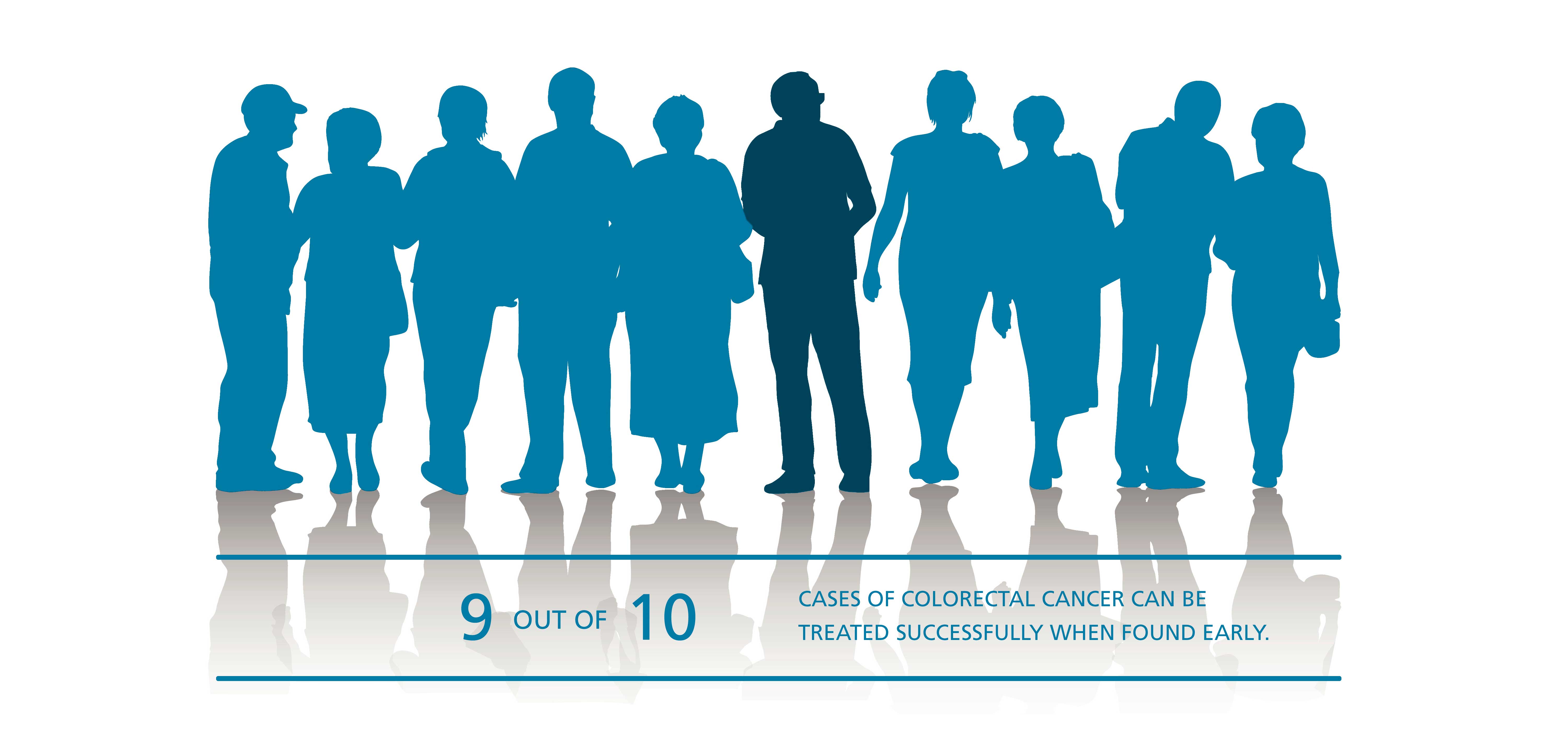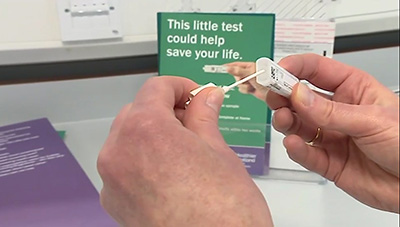However, if diagnosed early, more than 90% of bowel cancer cases can be treated successfully and the five year survival rates for bowel cancer have doubled over the last 40 years.
Screening aims to select people with no symptoms who are most at risk of developing bowel disease.
In England and Northern Ireland people over the age of 60 are invited to take part in bowel screening. The programme in England is expanding to make it available to everyone aged 50 to 59 years. This is happening gradually over 4 years and started in April 2021. In Scotland, Bowel screening is offered to people aged 50 to 74, and in Wales men and women aged between 55 and 74 are invited to take the test.
The screening programmes originally used the guaiac based Faecal Occult Blood Test (gFOBt), to look for hidden blood in faeces. The test was sent to the participant’s home and required them to smear two small samples of poo, onto a test card, three times a week. However, in recent years the diagnostic technology has greatly improved, with the introduction of the faecal immunochemical test (FIT). Scotland was the first of the four programmes to replace gFOBT with FIT, with the first invites for screening using the new test sent out in November 2017.


 Bowel Cancer Screening Saves Lives
Bowel Cancer Screening Saves Lives